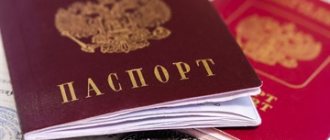Legal aspects of registration in mortgage housing
When concluding a mortgage agreement, the borrower becomes the owner of the property, not the bank. Purchasing housing with loaned funds provides the buyer with similar rights as when purchasing housing with their own money.
But still, the credit institution acts as the holder of the collateral property, which is provided for in
There is no need to doubt whether you can register in an apartment taken on a mortgage. There is no direct prohibition in regulatory legal acts. However, this question arises very often, since at the federal level the nuances of registration in such real estate are not covered. Banks sometimes rely on this, unjustifiably increasing registration requirements.
The legislation provides for the possibility to challenge in court the terms of mortgage agreements that limit the right of registration.
However, when a borrower wants to register in an apartment if it is mortgaged, disputes may arise between him and the lender. Such situations often occur in practice, since there is no uniform regulation that governs registration in such conditions.
Restriction by the bank of the rights of the owner of the mortgaged property
Due to the absence of a law describing in detail the registration of a mortgaged apartment, banks independently develop regulations that affect registration issues. You need to carefully read the agreement concluded with a financial institution.
The agreement usually mentions whether relatives can be registered in the mortgaged apartment, what restrictions are imposed on the borrower and other nuances affecting the interests of the new owner.
Every bank is interested in safe and stable operation. An attempt to limit the rights of the owner is a way to minimize risks in case the borrower stops fulfilling loan obligations.
Step-by-step instruction
So, where to start and how to register in a mortgaged apartment?
Step by step, the algorithm will be as follows:
- First you need to register ownership of the apartment. As a rule, this is done immediately after signing the loan agreement and settlement with the seller. In parallel with the right of ownership, Rosreestr will register the encumbrance in the form of a mortgage, which will not prevent the borrower from registering in the purchased housing.
- We draw up and submit a written application to the bank asking for permission to register a particular citizen in the mortgaged apartment. The application must indicate the details of a specific person and information about who he is related to the borrower (family member, child or distant relative). Some credit institutions provide the opportunity to submit such applications online through the lender's official website.
- We are awaiting consideration of the submitted application. This usually takes approximately 7 days.
- We obtain official permission from the bank, after which we contact the registration authorities.
When submitting an application to the passport office, you must provide documents from the following list:
- Borrower's passport;
- Birth certificates or passports of minors, if children are registered;
- The basis document for registration (usually a certificate of ownership of an apartment or an extract from the Unified State Register, sometimes a certificate of family composition is accepted);
- Written permission from the credit institution to register members of the borrower’s family or third parties in the mortgaged apartment;
- A copy of the loan agreement, if its text includes a provision on the possibility of registration and residence in the mortgaged apartment by persons other than the borrower.
- If the borrower registers members of his family or a third party, he will be required to submit a written application for the registration of a specific citizen. In this case, both applicants need to appear to submit documents (both the one who wants to register and the one who wants to register must be present).
If a third party is registered temporarily, according to the law, the period of validity of his registration is determined by an agreement with the owner of the residential premises, however, the bank can intervene in this situation, for example, by setting its own period for the citizen’s temporary registration. Typically, the period of temporary stay for third parties is set by the lender for no more than 5 years and, if after this period the owner wants to extend the registration, the bank has the right to refuse.
Registration in a mortgaged apartment
When concluding a loan agreement, most borrowers are interested in the question of when they can register in a mortgaged apartment. This can be done immediately after signing the document establishing ownership of the property.
The registration of other persons must be agreed upon with the bank so that disagreements and claims do not arise if these nuances are specified in the agreement.
An application is submitted to the financial institution to approve the registration of specific people, indicating their personal data, as well as the degree of relationship (or lack thereof) with the applicant.
The bank clarifies who can be registered in the mortgaged apartment in order to protect against the risks associated with non-repayment of the debt. A striking example: the Sberbank mortgage agreement.
It contains a prohibition on any encumbrance of the pledged property with the rights of third parties without the prior written consent of the creditor.
Usually you can register close relatives and children without any problems. More difficulties arise when registering other citizens. You almost always need to get the lender's permission. If the borrower decides to register third parties in the mortgaged apartment, circumventing the terms of the agreement, the financial institution may demand early repayment of the loan.
When to register in a mortgaged apartment
Based on practice in the matter of registration of premises purchased on credit, we can conclude that the borrower is allowed to begin this procedure immediately after completing the documents for mortgage and ownership.
To register relatives and strangers, you must first obtain the consent of the creditor.
Restrictions on registration in mortgage real estate
Whether registration in an apartment purchased with a mortgage is possible is discussed in the agreement concluded with the borrower. As mentioned above, sometimes the condition is simply notifying the bank of the intention to register children, other relatives and third parties. The following restrictions also apply:
- The requirement to obtain the consent of a financial institution to register persons in an apartment that serves as collateral for mortgage lending.
- Registration of a child in a mortgaged apartment is accompanied by a written obligation from the owner (parent) to remove him from registration if the borrower does not fulfill his obligations to pay the debt and penalties are imposed on the home.
Failure to comply with the terms of the agreement allows the bank to unilaterally terminate it, so all questions about registration should be resolved directly before signing the document. If any terms are in doubt, you may need to contact another financial institution.
Registration of children
Registering children in a mortgaged apartment is a common procedure. According to the law, the child is registered at the place of registration of the parents. This is a guarantee of the implementation of the owner’s rights to own and operate the living space. You can register a child on the basis of Art. 20 Civil Code of the Russian Federation.
If a baby was born after purchasing a home with an encumbrance in the form of a mortgage, he is automatically registered at the place of residence of the parents.
Still, it is better to provide for the child’s registration in the mortgage agreement in advance. If there is no such record, you should contact your financial institution for permission.
Please note once again: when answering the question of whether it is possible to register children in a mortgaged apartment, bank employees often mention the need to sign a written undertaking. The essence of the document is this: if monthly payments stop and the procedure for repossession of real estate begins, the owner voluntarily discharges the child.
Registration of co-borrowers
The co-borrower has equal rights and obligations with the borrower, therefore he is jointly and severally liable to the bank for repaying the loan (Article 323 of the Civil Code of the Russian Federation). The financial institution also takes into account its income when considering a loan application.
A co-borrower is attracted by the bank for a long-term loan and for a large amount, when the borrower does not have enough income. When purchasing a mortgaged apartment, such a person becomes a co-owner of the property. This is another good reason to register a person if the apartment has a mortgage.
The borrower and co-borrowers are considered the owners of the apartment, therefore their right to register in the mortgaged property cannot be limited.
Who will be the co-borrowers and how many of them there will be is determined by the bank. Typically, these include relatives of the main debtor: spouse, parents, brothers, sisters, and so on.
Features of temporary registration
Temporary registration in a mortgaged apartment is possible if the lender provides for this in the agreement. Most often, in the agreement, the bank discusses this procedure in relation to strangers.
The law requires temporary registration to be issued to people who change their place of residence for a period exceeding 90 days ( ). The maximum period for temporary registration is 5 years.
Consequences of failure to notify a financial institution
To ensure that registration when purchasing an apartment with a mortgage does not come into conflict with the bank, it is recommended to study in detail the registration provisions that the organization offers. If any of the points confuse you, you should look for an institution with more favorable lending conditions.
After signing the documents, the borrower can only adhere to the established requirements.
If the agreement specifies the obligation to notify the lender of the intention to register parents or someone else in the mortgaged apartment, these conditions must be observed, otherwise litigation may begin.
As a rule, if the borrower violates the terms of the agreement, the bank initiates unilateral termination of the agreement. In practice, there are situations when in this case the owner of a mortgaged apartment is required to repay the debt early.
Registration of third parties and temporary registration
With regard to third parties, the situation is different: the bank is given the right to impose a ban on the registration of unauthorized citizens. Such a prohibition is necessarily specified in the mortgage agreement, and if it is present, registration of third parties becomes impossible, and any such actions can be appealed in court. But if the mortgage agreement does not contain a literal prohibition, but only an obligation to obtain permission to register, you can submit a corresponding application to the bank.
Registration at the place of residence, as well as permanent registration, gives the right to reside in a specific living space. The only difference is the establishment of the period during which a person has the right to such residence. Therefore, all actions related to the registration of temporary registration are also prohibited or subject to approval by the bank. Depending on exactly what conditions were specified in the mortgage agreement.
How is registration in a mortgage apartment carried out?
The lender's representative (bank employee) usually explains how to register in a mortgaged apartment to the owner. The property owner, on his own behalf, fills out an application for registration. The rest of the family fills out a similar document on their own behalf. Parents do this for minor children.
Everyone who registers must attend in person. Family members can issue a power of attorney for the owner.
The Migration Service is ready to register the applicant without deregistration at his previous place of residence. To do this, during registration you need to submit 2 applications: for registration and for departure. It is also customary to contact housing offices, multifunctional centers and passport offices on this issue.
You can register in an apartment after purchasing it with a mortgage through. You need to register, gain access to your Personal Account, send an application and copies of documents remotely. After checking them, the borrower will receive a notification indicating where and when to appear to complete the procedure.
When applying in person, a citizen will have to visit the government structure three times:
- Check the list of documents and make an appointment.
- Submit papers for registration.
- Pick up your passport or certificate.
As practice shows, in order to register in an apartment purchased with a mortgage, you often need to present to the registration authority employee a mortgage agreement containing a list of persons approved by the bank.
Stages of registration
The registration process for a mortgage apartment consists of several stages:
- Notification by the borrower to the bank.
- Review of information by financial institution.
- The borrower contacts the passport office.
- Filling out a tear-off coupon for simultaneous discharge and registration.
When registering as a non-owner, you must provide permission from the owner of the apartment.
Package of documents
Registration and mortgage are interrelated concepts when it comes to residential real estate. For the registration process to be legal, you will need a certain package of papers:
- Application on form No. 6.
- Passports of all adults and children over 14 years of age.
- Military ID - for those liable for military service.
- Certificate of departure from previous place of residence.
- Marriage certificate (for registration of a family member).
- Birth certificate of children (for minors).
- A copy of the certificate of ownership of the apartment.
Additionally, you may need a copy of the page of the mortgage agreement, which mentions the possibility of registering third parties in the mortgaged housing. It is also worth attaching written permission from the bank.
How long does the procedure take?
The registration procedure for a mortgaged apartment usually takes no more than three working days. In difficult situations, the process may take a little longer, but it should not exceed 10 days.
How to register?
Regardless of the bank, the step-by-step instructions for registering in a mortgaged apartment are the same for everyone:
- Writing an application (or sending an application on the bank’s official website). Depending on your case, this may be either a request for consent to register a certain person, or a notification to the bank of your decision to register yourself or another person in mortgaged housing;
- Consideration of the application. The maximum review period is not more than one working week;
- Obtaining a bank decision. If the decision is positive, you can immediately contact the passport office.
Step-by-step instructions for registering in an apartment
List of required documents
You will need to bring the following documents to the passport office:
- Applicant's passport;
- Identity card of the person you want to register;
- Military ID (if any);
- A document that confirms that you are no longer registered at your previous place of residence;
- Marriage certificate (if you are registering a spouse);
- Document on the right to own housing;
- An extract from the loan agreement, which states your right to reside and register other persons in the mortgaged housing;
- In certain cases, the creditor's permission must be provided in writing.
When submitting documents, the applicant must be present in person.
Features of child registration
According to the legislation of the Russian Federation, minor children are registered with their parents. This also applies to how to register a child in an apartment taken on a mortgage. In this case, the consent of the owner, co-owners and even the bank is not required. The FMS may only require the mother's written consent, certified by a notary, if the child is registered in the father's living space.
By law, all children are discharged from one residential area to another only with the permission of the board of trustees.
Knowing the intricacies of the process of registration/discharge of children, the bank will include in the terms of the contract the obligation of the owner to independently register the child if a penalty is imposed on the housing.
A newborn is always registered for the first time at the place of residence of the parents. But registering a minor child in a mortgaged apartment is somewhat more difficult due to the intervention of the guardianship and trusteeship authorities in the process.
Child's share
There are several ways to allocate a share in a mortgaged apartment to a child:
- by agreement of the parents;
- under a gift agreement;
- judicially.
It is worth mentioning the use of maternity capital - a certificate for the issuance of cash for the birth of a second or third child in the family. In 2020, its size is just over 453,000 rubles.
While the apartment is pledged to the bank, the recipient of the certificate or both spouses must issue a long-term commitment to allocate a share to the children after repaying the debt. However, the guardianship authorities require that children's parts be allocated even before the sale and purchase transaction is completed.
Not all banks agree with this requirement, because if payments are late, the financial institution takes away the mortgaged apartment, and the share allocated to children will interfere with its implementation.
To facilitate cooperation with banks, let us remind you which of them are ready to provide mortgages against capital. The most reliable lenders:
- Sberbank. The average interest rate is from 11.10%.
- DeltaCredit Bank (from 9.5%).
- VTB (from 10.10%).
- Bank of Moscow. You can use matkapital to pay off the principal debt.
The rates in Nomos Bank and UniCredit Bank are slightly higher - 11-14%.
Documents for child registration
Sometimes registering a child causes more difficulties than registering close relatives in a mortgaged apartment. The composition of the package of documents depends on many factors.
If the baby is not yet a month old, you must provide the mother’s application for registration of the child and his birth certificate.
The list of documents for registration of a minor child is compiled taking into account whether the parents are married and where they live:
- application for registration at the child’s place of residence (form No. 6). The form can be obtained from the passport service;
- birth certificate, marriage certificate;
- parents' passports;
- certificate of personal account;
- a certificate from the place of registration of the mother (father) stating that the child is not registered with her (him).
- consent of the father (mother);
- certificate of divorce, establishing paternity.
The last two documents are not always required. In addition, there is no need to provide information that is already in the database, for example, an extract from the house register.
Refusal to register a child in a mortgaged apartment
As a general rule, the child must live at the place of registration of the parents. In most cases, registration of children goes without problems.
If the registration address changes, the guardianship authorities, under certain circumstances, may refuse to register the child in the mortgaged apartment. This is usually justified by the fact that the new housing is smaller in area than where the person lived before.
Registering a child without the consent of the creditor
Registration of third parties in a mortgaged apartment without notifying the bank threatens the borrower with negative consequences, but children can be registered legally and without the consent of the financial institution. To do this you should:
- Submit a package of documents to the passport office at your place of residence, fill out an application and an arrival slip.
- If a passport service employee requires permission from the bank, remind him of the provisions of Art. 20 Civil Code of the Russian Federation and
- If registration is refused, write a complaint to a higher division of the Main Department of Migration Affairs of the Ministry of Internal Affairs and send it by registered mail with acknowledgment of receipt.
- If the answer is negative, file a claim in court, attaching a copy of the refusal.
It is possible that after registering a child at the place of residence, the bank may impose a fine on the parents. It can also be challenged by filing a lawsuit in court.
Is it possible to register a child without the consent of the creditor?
Many parents are concerned about the question of whether the bank’s consent is needed to register children in mortgaged real estate and what to do if the financial institution does not give such permission? Unfortunately, such problems arise very often, because on the one hand, the presence in a loan agreement of a ban on registering the borrower’s children is legally void, and on the other hand, banks strongly recommend compliance with this recommendation.
If faced with such a situation, the borrower can use the following algorithm of actions:
- Contact the regional unit of the Main Directorate of Migration Affairs of the Ministry of Internal Affairs of the Russian Federation at your place of residence (passport office) with an application and all necessary documents.
- If the employees of the passport office begin to demand the written consent of the bank, remind them of the norms of the current legislation:
- Art. 20 of the Civil Code of the Russian Federation, according to which the child’s place of residence is the place of registration of his parents;
- Art. 3 of the Law of the Russian Federation No. 5242-I of June 25, 1993, obliging every citizen of Russia to obtain permanent or temporary registration;
- Decree of the Government of the Russian Federation No. 713 of July 17, 1995 (as amended on December 23, 2016) on the procedure for registering Russians at their place of residence;
- Art. 64-65 of the Family Code of the Russian Federation on the parental rights of Russian citizens.
- If you receive a refusal to register, file a complaint with the city or regional department of the Main Directorate for Migration Affairs of the Ministry of Internal Affairs and send it by registered mail with acknowledgment of receipt.
- If you receive a negative answer, file a statement of claim in court with a copy of the response letter attached.
Penalties imposed by the bank after successful registration of children at the place of residence of the parents should also be challenged through a lawsuit.
The only way to avoid conflicts with a financial institution is to carefully study all the clauses of the mortgage agreement and consult with a professional lawyer. If you are categorically not satisfied with the provisions regarding registration, look for a more loyal lender.









